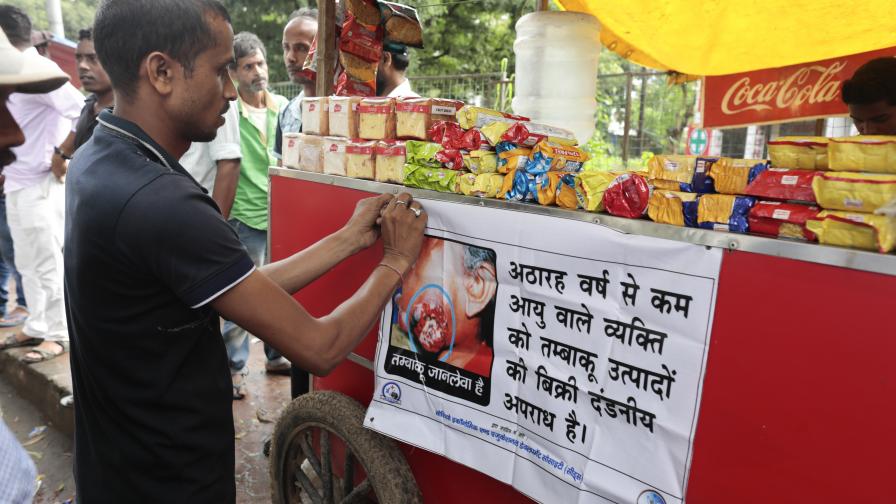
The tobacco industry spends billions of dollars every year to market its tobacco products, attract customers, increase sales and normalize tobacco use. Companies market their products directly through advertising, and indirectly through promotions and sponsorship.
Tobacco companies creatively utilize multiple forms of direct and indirect channels to target and recruit new tobacco users. They use such means as television, print, radio, internet, point-of-sale displays, product placement in films, brand stretching, and sponsorship of sports, cultural and music events.
Key Facts
Comprehensive bans of TAPS are effective in decreasing the consumption of tobacco products.
- Tobacco advertising increases consumption.
- Comprehensive bans on TAPS reduce tobacco consumption.
- One third of youth experimentation with tobacco is a result of exposure to tobacco advertising, promotion and sponsorship.
- Partial advertising bans do not work because tobacco companies use indirect advertising methods to circumvent bans.
- Article 13 of the WHO FCTC requires parties to implement measures that allow for a comprehensive ban on direct and indirect tobacco advertising, promotion and sponsorship.

Restricting tobacco advertising at points-of-sale are an effective way to counter the tobacco industry’s efforts to attract current smokers, recent quitters and new customers, particularly youth.
Points-of-sale are a critical place to enforce TAPS bans because retailers are very important to the tobacco industry. Researchers have demonstrated the impact of tobacco industry activity at the point of sale on health behaviors such as tobacco use initiation and relapse after a quit attempt.
CounterTobacco.Org is comprehensive resource working to counteract commercial tobacco product sales and marketing at the point of sale (POS). Whilst primarily US-focused it offers evidence-based descriptions of the problem, policy solutions, advocacy materials and latest news.
TAPS Implementation

A TAPS ban that can be effectively implemented and enforced requires laws or regulations that include:
- An independent authority to monitor and enforce the law with adequate resources and powers to impose dissuasive penalties.
- A role for civil society in monitoring and enforcement, including a complaints mechanism to report breaches and the right to launch legal action.
The WHO FCTC outlines the following recommendations of best practice for effective TAPS implementation, enforcement and monitoring:
- Political will and public support
- Announcement of bans in advance of implementation
- Periodic updates to legislation to address new products and industry tactics
- Significant penalties for violations to be dissuasive
- Frequent monitoring of TAPS
- Coordination with other government ministries and civil society organizations
- International collaborative enforcement of cross-border bans
- Combatting of tobacco industry interference
Monitoring and Evaluation
How to measure the effectiveness of TAPS bans
- Consumer surveys are most effective but rely on gaining access to and cooperation from a representative sample and self-report measures
- Surveys can measure the baseline and decreases in awareness of activity, familiarity with brands, perceptions of smoking norms, overall attitudes, quitting intentions
- Marketing surveillance can include internet, retail outlets, audits of press
featured resources
WHO Report on the Global Tobacco Epidemic, 2013
This report, WHO’s fourth in the series, provides a country-level examination of the global tobacco epidemic and identifies countries that have applied selected measures for reducing tobacco use. This report focuses on Enforcing bans on tobacco advertising, promotion and sponsorship.
Evidence on the Effect of POS Display Bans on Smoking Prevalence
This study evaluates the effect of point-of-sale display bans globally as of 2016.
OTHER POLICY AREAS
You might also be interested in learning more about implementing Smoke-free or Tobacco Vendor Licensing policies.
